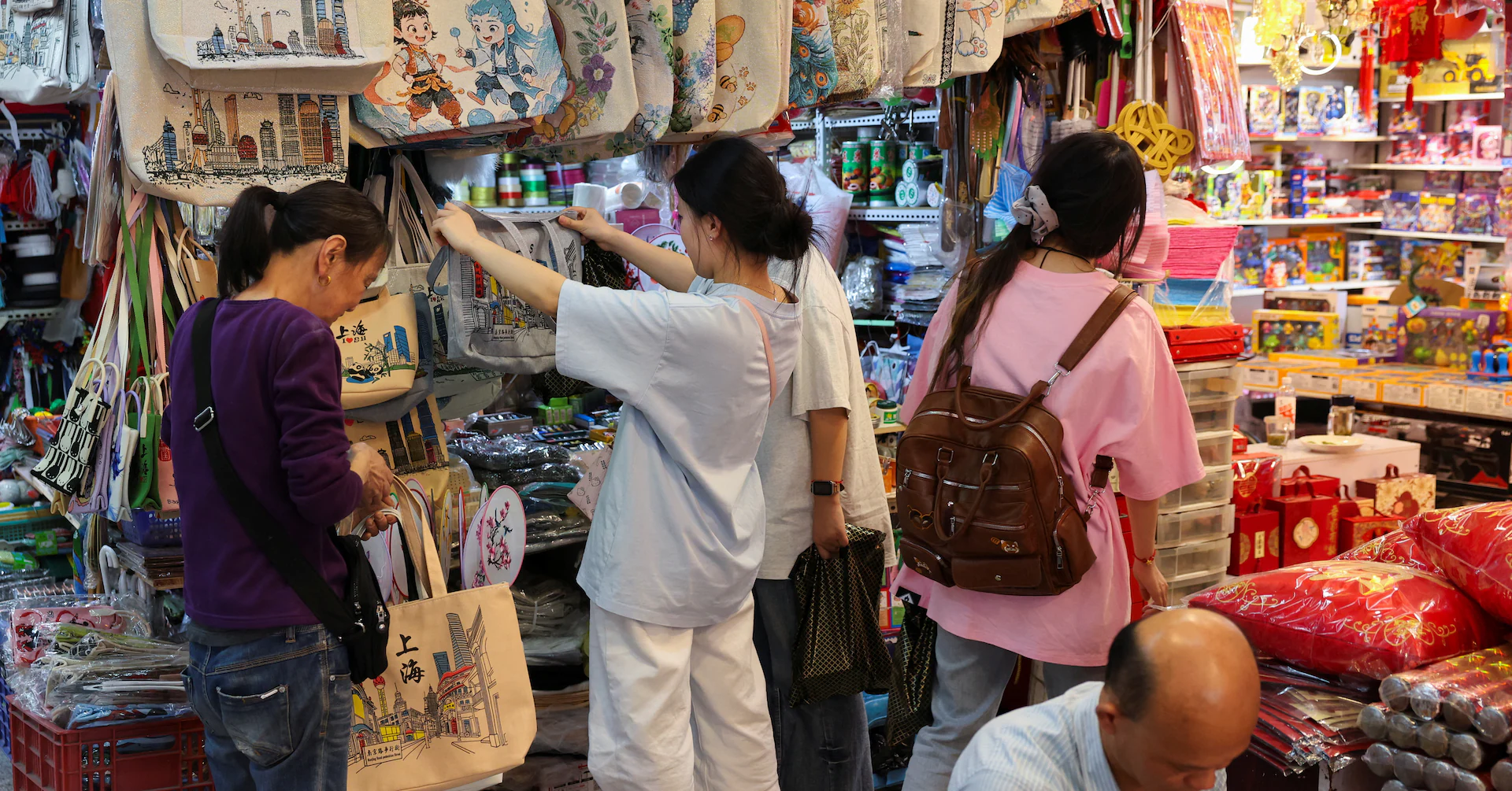
HONG KONG, Oct 2 (Reuters) – As China faces a growth slowdown, the technology-driven “intelligent economy” and emerging consumption trends offer protection against slackening economic activity, but more targeted government policies will still likely be needed to sustain momentum.
In the first half of the year, Beijing was on track to meet its 2025 growth target of 5%, with 5.4% and 5.2% growth recorded in the first two quarters, but activity appears to have slowed since.
Sign up here.
There are, however, bright spots in China’s economy – many of which have been beneficiaries of new and ongoing government policies.
First, Beijing’s efforts to support China’s “intelligent economy” – e.g., artificial intelligence, semiconductors and other advanced manufacturing – have helped the Information Technology and Business Services sectors outshine many others since early 2024.
This trend looks set to continue, as China is investing massively in industrial and humanoid robots that could boost productivity. Over the last three years, more than half of the world’s industrial robots were installed in China.
SHIFT IN CONSUMER PREFERENCES
Another driver of growth this year – and one that could persist moving forward – is the shift in consumer preferences.
Chinese millennials and Gen-Z are flocking to new types of domestic products and services, especially those that promote social engagement, combine tradition with modernity, and engage customers with AI and other digital technology.
Such “new consumption” has helped drive the sales of PopMart’s Labubu doll, and has also boosted the popularity of tea house chain Chagee’s Chinese opera-inspired outlets and Laopu Gold’s jewellery rooted in traditional Chinese craftsmanship.
PopMart’s exploding margins stand out here, in part because China’s overall consumer goods sector is stagnating. This suggests that novel types of products and services in China have the potential to break out of their categories.
CHART POP MART
One could also argue that PopMart’s success is a one-off that would be difficult to replicate on a broader scale. Moreover, such astronomical growth could presage a rapid decline if the Labubu fad fades.
On the other end of the demographic spectrum, the “ageing China” narrative is also spawning new businesses, including smart home technology, elder care services, financial pension plans and specialized healthcare products.
While China’s new consumption patterns and “intelligent economy” have had a positive impact on growth this year, this has not been enough to offset the negative effect of decelerating activity in the manufacturing, construction and property sectors.
Meanwhile, the growing resistance in the West to Chinese exports only underscores the need to boost domestic consumption.
This is clearly on the government’s list of priorities, and given the country’s stubbornly low consumption sentiment, the diminishing impact of monetary stimulus and shrinking room for fiscal support, policymakers have had to expand their toolbox.
To begin, policymakers seem to understand that consumption sentiment is unlikely to improve unless employment does. In turn, Beijing has already started to provide targeted support to small and medium enterprises to encourage hiring. It may also seek to incentivise firms to hire with a social insurance subsidy or enhance workers’ skills through targeted vocational training.
Reviving the positive wealth effect could also be helpful. The flagging property sector, which accounts for 60% of the average Chinese householders’ wealth, remains a drag on consumption sentiment.
Truly shifting to a sustainable, consumption-driven economy could be a lengthy, complex process – and pitfalls abound – but investment in advanced industries, innovation in products and services, and nimble policymaking could represent a firm foundation.
(The views expressed here are those of Manishi Raychaudhuri, the founder and CEO of Emmer Capital Partners Ltd. and the former Head of Asia-Pacific Equity Research at BNP Paribas Securities).
Writing by Manishi Raychaudhuri; Editing by Anna Szymanski and Barbara Lewis
Our Standards: The Thomson Reuters Trust Principles., opens new tab
Opinions expressed are those of the author. They do not reflect the views of Reuters News, which, under the Trust Principles, is committed to integrity, independence, and freedom from bias.



